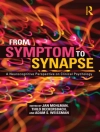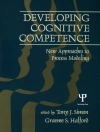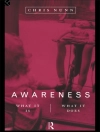This timesaving resource features:
- Treatment plan components for 30 behaviorally based presenting problems
- Over 1, 000 prewritten treatment goals, objectives, and interventionsplus space to record your own treatment plan options
- A step-by-step guide to writing treatment plans that meet the requirements of most accrediting bodies, insurance companies, and third-party payors
- Includes new Evidence-Based Practice Interventions as required by many public funding sources and private insurers
Practice Planners® THE BESTSELLING TREATMENT PLANNING SYSTEM FOR MENTAL HEALTH PROFESSIONALS
The Older Adult Psychotherapy Treatment Planner, Second Edition provides all the elements necessary to quickly and easily develop formal treatment plans that satisfy the demands of HMOs, managed care companies, third-party payors, and state and federal agencies
- New edition features empirically supported, evidence-based treatment interventions
- Organized around 30 behaviorally based presenting problems including depression, unresolved grief, life role transition, and substance abuse
- Over 1, 000 prewritten treatment goals, objectives, and interventionsplus space to record your own treatment plan options
- Easy-to-use reference format helps locate treatment plan components by behavioral problem
- Includes a sample treatment plan that conforms to the requirements of most third-party payors and accrediting agencies including CARF, The Joint Commission (TJC), COA, and the NCQA
Additional resources in the Practice Planners® series:
Documentation Sourcebooks provide the forms and records that mental health??professionals need to??efficiently run their practice.
Homework Planners feature behaviorally based, ready-to-use assignments to speed treatment and keep clients engaged between sessions.
For more information on our Practice Planners®, including our full line of Treatment Planners, visit us on the Web at: www.wiley.com/practiceplanners
Tabella dei contenuti
Practiceplanners ® Series Preface xi
Acknowledgments xiii
Introduction 1
Sample Treatment Plan 9
Activities of Daily Living (ADL/IADL) Deficits 13
Anxiety 20
Caregiver Distress 31
Communication Deficits 40
Decisional Incapacity 49
Depression 57
Disruptive Behaviors of Dementia 66
Driving Deficit 73
Elder Abuse and Neglect 79
Falls 87
Grief/Loss Unresolved 93
Interpersonal Disputes 101
Life Role Transition 108
Loneliness/Interpersonal Deficits 114
Mania/Hypomania 121
Medical/Medication Issues Unresolved 129
Memory Impairment 137
Nutritional Deficits Unresolved 144
Obsessive-Compulsive Disorder 152
Panic/Agoraphobia 159
Paranoid Ideation 167
Persistent Pain 175
Phobia 183
Residential Issues Unresolved 191
Sexually Inappropriate Behavior 199
Sleep Disturbance 206
Somatization 212
Spiritual Confusion 220
Substance Abuse/Dependence 228
Suicidal Ideation/Behavior 236
Appendix A: Bibliotherapy Suggestions 244
Appendix B: Professional References for Evidence-Based Chapters 252
Appendix C: Recommended Assessment Measures for Non-Evidence-Based Chapters 263
Appendix D: Recovery Model Objectives and Interventions 264
Circa l’autore
ARTHUR E. JONGSMA, JR., PHD, is the Series Editor for the bestselling Practice Planners®. Since 1971, he has provided professional mental health services to both inpatient and outpatient clients. He was the founder and director of Psychological Consultants, a group private practice in Grand Rapids, Michigan, for 25 years. He is the author or coauthor of over 50 books on treatment planning and has conducted training workshops for mental health professionals around the world.
DEBORAH W. FRAZER, PHD, is a licensed clinical psychologist who has worked with older adults for more than thirty years as a clinician, teacher, administrator, and consultant. Dr. Frazer is the author of more than thirty articles and book chapters related to work with older adults. She has written, taught, and developed programs in public, nonprofit, and corporate settings, and is currently an independent practitioner and consultant.
GREGORY A. HINRICHSEN, PHD, is a geropsychologist with thirty-five years of experience in the field of aging. During his career, he has provided clinical services to older adults, conducted gerontology research, directed geropsychology training programs, and contributed to aging public policy. Dr. Hinrichsen is Associate Clinical Professor of Psychiatry and Behavioral Sciences at the Albert Einstein College of Medicine.












